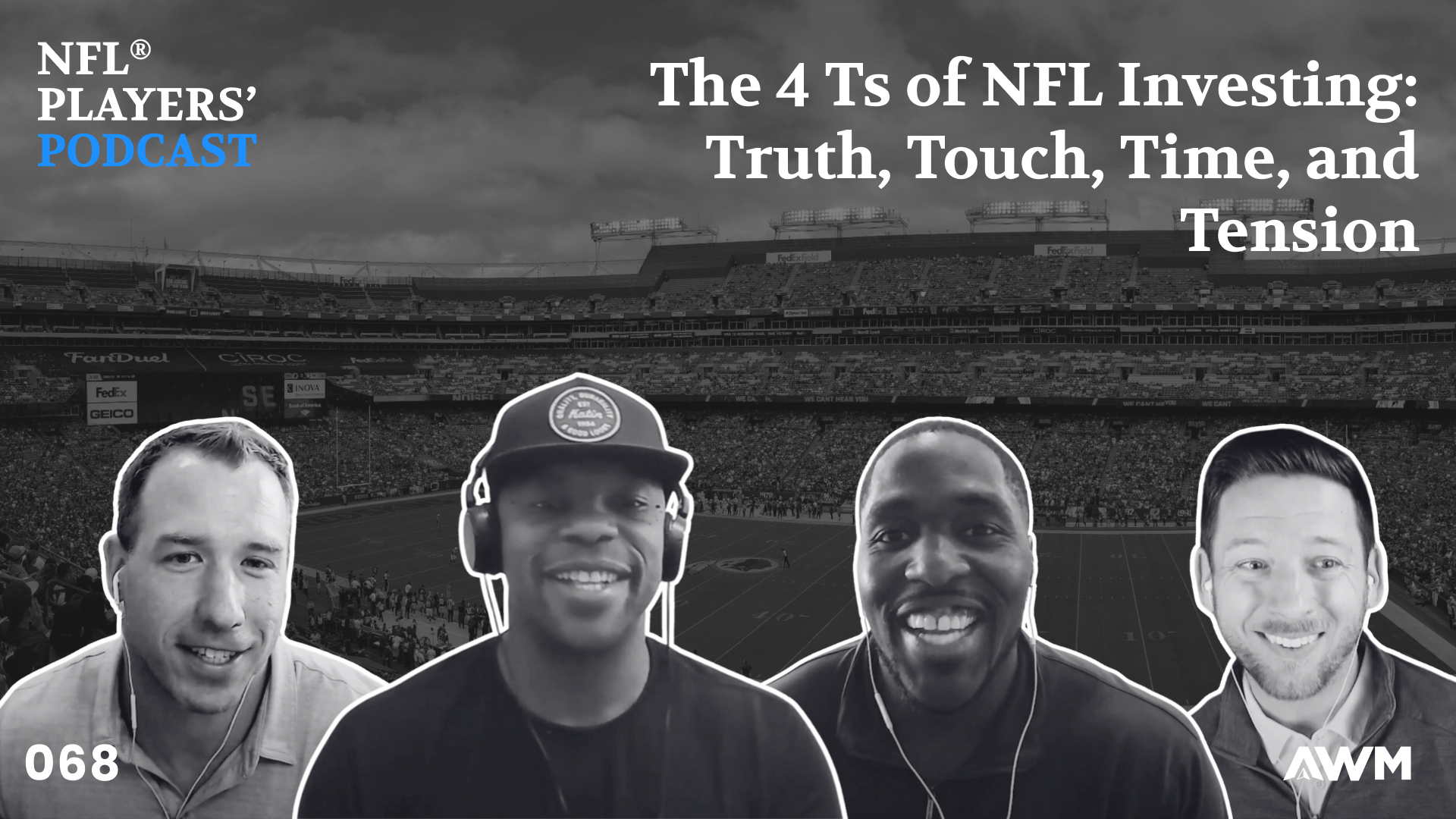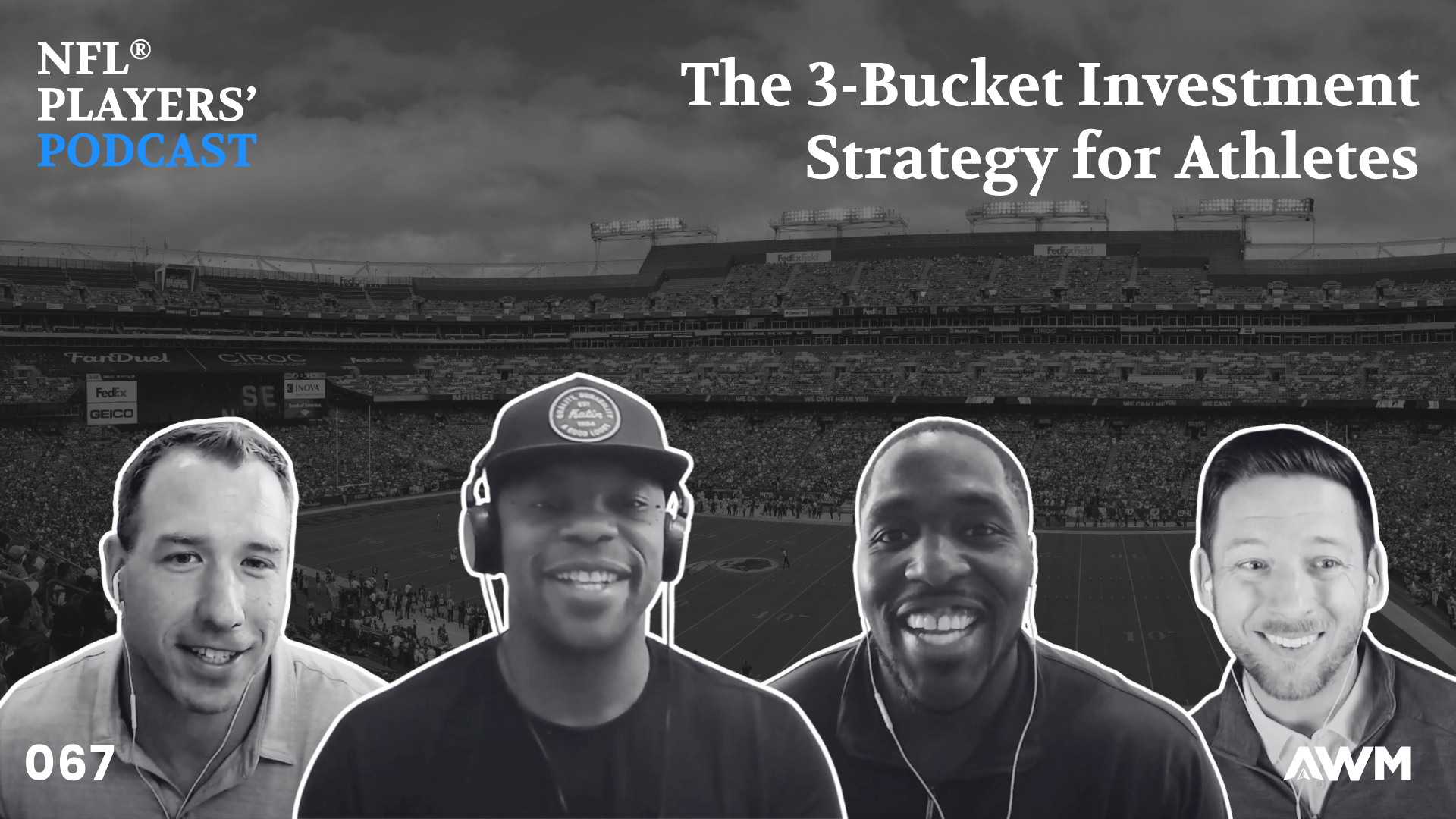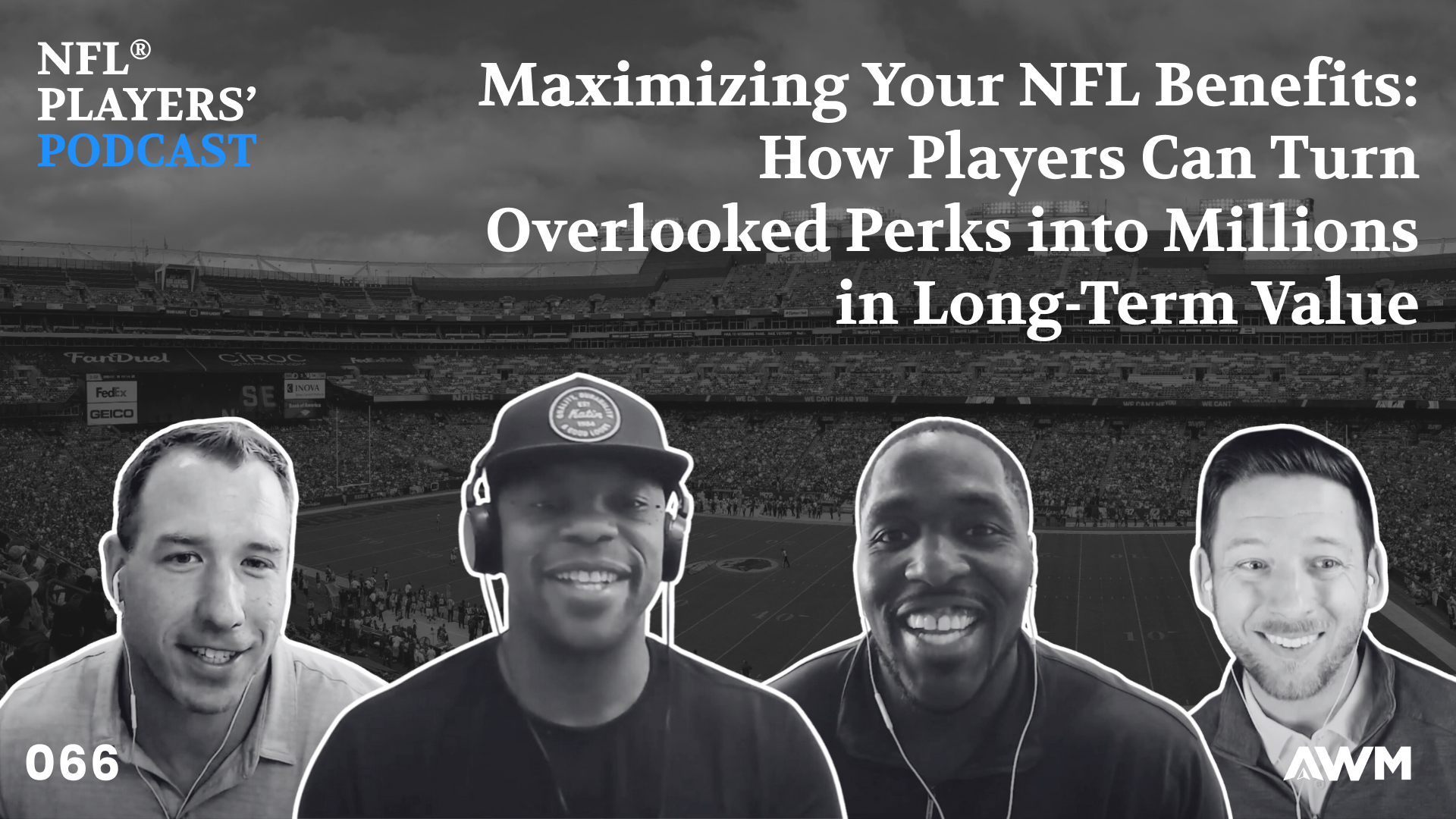How NFL Players Can Navigate the Path to Smart Investing

Investing wisely is crucial for NFL players. Understanding equities, bonds, markets, and diversification is key to long-term financial health

The Basics of Investing
At its core, investing is the art of using your money to earn more money. It means putting your capital to work in ways that can generate a return over time. NFL players often find themselves with substantial earnings early in life, but without the right financial strategies, that wealth can diminish quickly. Two key terms to know when you’re first getting into investing are equity and bonds.
Equities, or stocks, represent ownership in a company. When you invest in a company, you're essentially buying a piece of that business. If the company grows and performs well, your investment grows too. But it’s not just about buying into big names. Understanding the stability, growth potential, and future outlook of a company is essential to making wise stock investments.
On the other hand, bonds function more like loans. When you buy a bond, you're lending money to a corporation or a government, and they pay you interest over time. Bonds are typically less volatile than stocks, making them attractive for those seeking predictable, steady returns. However, not all bonds are created equal. The creditworthiness of the issuer is a major factor that determines the safety of your investment.
Beyond understanding the differences between owning equity and lending through bonds, it’s crucial to consider the tax implications of your investment choices. Tax efficiency can significantly affect your real returns. A smart investor always thinks in terms of after-tax income.
Understanding Markets: Public vs. Private
Determining where to place your investments involves understanding the nature of public and private markets:
- Public Markets: These are easily accessible platforms for investors where stocks, bonds, and other securities are traded openly. Companies like Apple are listed here, providing transparency and liquidity. Public markets are less risky, but still demand careful research and scrutiny.
- Private Markets: Investments here are in entities not available to the general public, such as private equity or venture capital. They offer potentially higher returns but come with increased risk and lesser liquidity. Investing in private markets necessitates accredited investor status, due to the intrinsic volatility and lesser regulation.
Knowledge of these markets helps prepare a strategy aligned with your financial goals and risk tolerance. Consider how each investment type fits into your broader risk management plan.
Building the Right Investment Portfolio
A well-structured investment portfolio balances risk and reward. But before you even consider what to invest in, start by investing in yourself. Maintaining peak performance on the field, managing your health, and building your personal brand are all forms of investment that can pay lifelong dividends. Education and career planning beyond football are equally essential to long-term financial well-being.
When you’re ready to build your portfolio, diversification should be a guiding principle. Putting all your money into a single asset class—or a single company—exposes you to unnecessary risk. By spreading your investments across different markets and asset types, you create a buffer against volatility.
It’s also important to factor in your liquidity needs. Life can be unpredictable, and you may need quick access to cash for opportunities, emergencies, or big life changes. Ensuring a portion of your portfolio remains easily accessible helps you stay flexible and avoid selling long-term investments at the wrong time.
External factors, like economic trends or interest rate changes, should influence your decisions, too. Just as importantly, personal life milestones—marriage, children, retirement planning—can shift your investment strategy. Staying adaptable is part of staying smart.
The Importance of Early Investment
Time is one of the most powerful tools in investing. Starting early allows you to benefit from compound growth—the process where your investment earnings begin to generate their own earnings. Over time, this creates a snowball effect that can lead to substantial wealth.
Engaging with the market early also gives you a better understanding of its cycles. You learn how markets rise and fall, how to manage through downturns, and how to spot opportunities. These lessons help shape your decision-making and reduce the risk of panic or poor choices when faced with volatility.
And yes, you’ll likely make some mistakes along the way. But the earlier you start, the more time you have to learn from those missteps and improve your strategy. Investing young is like gaining preseason reps—you build experience that pays off when it really counts.
Planning for Future Financial Security
Thinking long-term is what turns wealth into legacy. That means looking beyond the next contract and into the life you envision after football. Consider how your income, lifestyle, and responsibilities might change, and plan your finances to support that transition.
Understanding your tolerance for risk is key. Early in your career, you might be comfortable taking bigger risks with a portion of your portfolio. But as you get older or take on more responsibilities, your appetite for risk may decrease. A thoughtful mix of high-risk and conservative investments can help you weather changes while still pursuing growth.
Working with trusted financial professionals is a smart move. Advisors who understand the unique financial landscape of professional athletes can help tailor strategies to your specific needs. They’ll guide you through complex investment choices, help you understand your options, and provide a clear-eyed view of your financial picture.
Finally, stay engaged. Your investment plan isn’t something to set and forget. Markets shift, personal goals evolve, and new opportunities emerge. Regularly reviewing and adjusting your strategy keeps it aligned with your life as it changes.
Securing your Future
Investing strategically is more than just wealth accumulation. It's about securing your future and that of your family. With careful analysis, diversified investments, and an understanding of market dynamics, you can create sustainable wealth. Start early, remain informed, and lean on expert guidance to craft a strategy that aligns with both your present career and the future you envision.
Transcript
Share this post
Related articles
Your Family Office

We're here to help you navigate.
Our advisors are ready to serve as your Athlete Family Office.
Your Family Office

We're here to help you navigate.
Our advisors are ready to serve as your Athlete Family Office.









